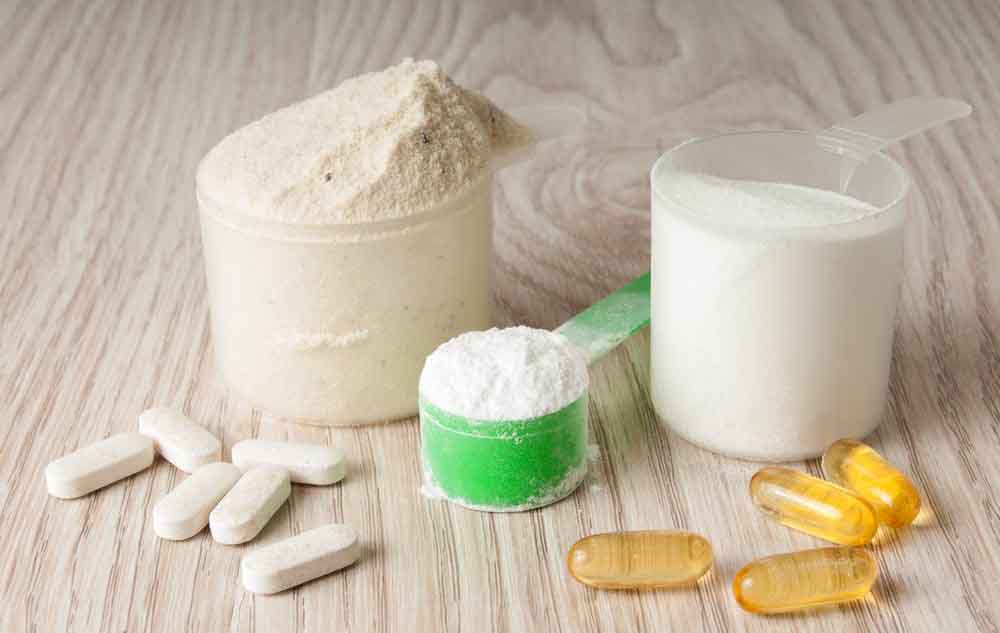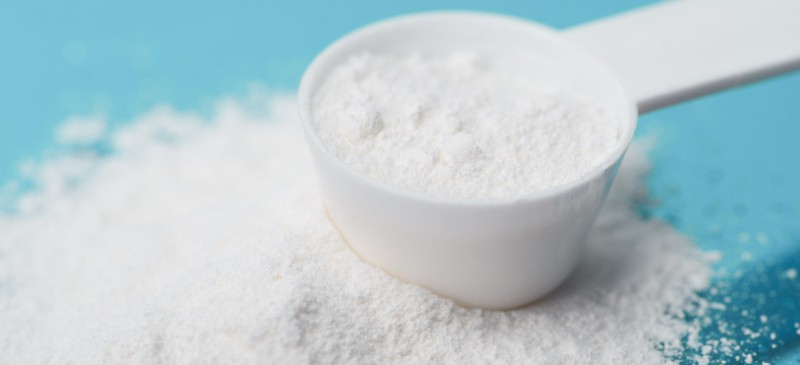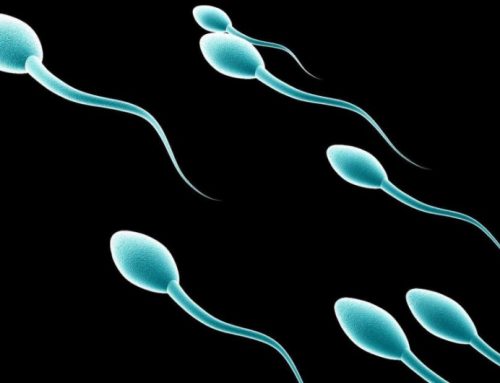L-Carnitine a very important amino acid – essential for the body – with many important health benefits, comes to today’s review.
L-Carnitine is naturally produced by the organism with the synthesis of 2 other amino acids: methionine and lysine.
Methionine: A sulfur amino acid, promoting hair, skin and nail health, extremely necessary for the proper functioning of the organism.
Lysine: Lysine the second amino acid, contributes to organism’s protein synthesis, assisting to strengthen and rebuild muscles, strengthen and rebuild tissues, while participates in the production of enzymes and hormones necessary for the organism proper functioning as well.
Carnitine is found in almost every cell of our organism.
After all, its name comes from the Latin word “carnus” which means flesh / meat.
A very important role is the production of beneficial energy for the functioning of our organism (internally for the organs and externally for body’s movement).
Below a complete picture of L-Carnitine offers useful details.
L-Carnitine: Action – Benefits
As mentioned earlier, Carnitine plays an important role on energy production of organism’s functioning. This energy produced by transporting the long chain fatty acids to mitochondria, leading them to produce beneficial energy for use by the organism so it could be productive.
Satisfactory production of energy from fatty acids automatically means less energy deficiency, and therefore a smaller need to eat, promoting the monitoring of a weight loss diet plan and enhancing the organism’s fat-dissolving process.
In other words, easier weight loss, faster fat loss, better psychology.
However, in addition to transporting fatty acids for energy production, L-Carnitine is involved in another very important process in organism by carrying all toxic and unhealthy compound threatening the organism, used on mitochondria creation.
Therefore “cleanses” the environment of all “cellular waste”, preventing its accumulation which would create serious problems in organism and its function.
Carnitine in the human organism is mainly found in places where fatty acids are stored, that is, in the heart, but also in skeletal muscles, where there are plenty fatty acids used as “fuel”.
Is a Sufficient Amount of L-Carnitine produced by the Organism?

In general – in most people – the production of Carnitine by the organism is sufficient, meeting its energy needs.
Nevertheless, this is not true for everyone.
There is a small group of people where – sometimes for medical or hereditary reasons – their organism does not produce sufficient amount of carnitine.
As Carnitine is an essential nutrient for organism’s proper functioning, needs to be supplemented by nutritional supplements.
Which is the Specific Amount of Carnitine for proper Functioning of the Organism?
Usually – as mentioned – in most people the organism undertakes takes the production of L-Carnitine on its own, actually to a sufficient amount for proper functioning of the organism.
For most people – men, women and children – there is no need to worry about taking this amino acid via the diet or other supplements.
The amino acids methionine & lysine contributing to the creation of Carnitine are produced in sufficient quantities by the kidneys and liver, meeting organism’s daily needs.
Having said all above why we meet Carnitine in so many Nutritional Supplements?
Carnitine is also received via the diet – and especially when consuming red meat, poultry, dairy and even fish.
We can understand that a person following a vegetarian (or vegan) diet is much more difficult to receive sufficient amounts of Carnitine via its daily routine through it.
Be aware that, the organism through the small intestine, moving via the bloodstream, absorbs a large percentage of dietary carnitine (about 60 – 85%).
For maintaining a constant concentration in blood, excess carnitine is usually excreted via the urine.
The body usually covers the necessary amount of carnitine adequately, even in people following a vegetarian or even strict vegan diet with no animal products.
People suffering from L-Carnitine deficiency are classified into 2 main categories:
- those deficient due to a genetic disorder (primary deficiency)
- those deficient due to disorders resulting from external factors (secondary deficiency)
In both cases, there is a prescription for carnitine supplements to help the organism receive the amount required.
So many other Nutritional Supplements contain Carnitine. Why if it’s not Necessary?
Carnitine is a common dietary supplement among athletes (professionals or not).
IMPORTANT INFORMATION: The administration of carnitine supplements enhances athletic performance significantly, improves energy reserves, increases endurance and promotes muscle rebuilding.

Besides, receiving this amino acid seems to contribute to faster & more efficient fat loss, even for the most stubborn local body fat.
We conclude that Carnitine – though a natural nutrient – could play an important role in the training process, by strengthening (not shown yet) the metabolic process and promoting muscle gains.
However, this is not all. L-Carnitine is associated – according to scientific studies – to male fertility. Scientists claim that may increase the sperm’s motility and quality, so increasing male fertility, providing a kind of androgenic action extremely beneficial for sexual performance and men’s athletic performance.
IMPORTANT INFORMATION: Carnitine reduces cell death in the testicles dramatically, preventing male’s sexual “aging.”
As we see, Carnitine is found in several nutritional supplements, as weight and fat loss supplements, sports performance enhancement supplements, male sexual boosting supplements, even health and wellness supplements, detoxification & body enhancement supplements, for the right reasons.
NOTE: The US National Food and Drug Agency (FDA) approved the use of Carnitine as a medication to treat primary and secondary carnitine deficiency in the body.
Carnitine on Slimming

L-Carnitine, though does not belong to the category of essential amino acids (and produced by the organism in sufficient quantities, not requiring additional administration via the diet), plays an important nutritional role especially in those wishing to control their body weight and lose fat effectively.
An animal-based diet increases Carnitine administration and promotes weight loss.
Here is how it happens.
Red meat is considered as the richest food in Carnitine, followed by poultry, dairy products and fish.
Additionally, carnitine is met – in significantly smaller quantities even in fruits and vegetables. However, these quantities are so small not worth counting.
The vast majority of carnitine in organim (about 95-98%) is found in muscle tissue (as well as in heart muscle).
As carnitine is responsible for transporting fatty acids to mitochondria for beneficial energy production, nutritional supplements use this very fact.
If they manage to increase – with external administration – the concentration of carnitine, then the rate of metabolism of fatty acids will increase, so the loss of body fat.
The scientific community still seems to investigate the exact effect of carnitine supplements on organism, believing that may boost a person’s energy, athletic endurance and physical strength, as well as to increase training gains (loss of body fat and muscle tissue growth).
Basic Types of Carnitine
The main types of carnitine are:
- L-carnitine
- acetyl-L-carnitine (ALCAR)
- L-Carnitine L-Tartrate (LCLT)
- Propionyl-L-carnitine (usually bound to glycine and called GPLC)
Today the main reference is made for L-Carnitine.
L-Carnitine in particular, seems to have been a major concern for the scientific community in recent decades, with an increasing number of food supplements being marketed.
Its capability to increase the metabolism of fatty acids plays a catalytic role in its position among the main components of various dietary supplements.
The synthesis of carnitine by the liver and kidneys – in addition to the 2 amino acids: lysine & methionine – requires other key nutrients, such as iron, vitamin B6, vitamin C and niacin (B3 Vitamin).
NOTE: Often the medical community uses the Carnitine’s capability to metabolize fatty acids in people suffering from heart failure.
Our Proposal: PhenQ
(Dietary Supplement for Fat burning and Weight Loss)

The natural food supplement PhenQ is a product of the well-known company WOLFSON BERG LIMITED, with more than 10 years of experience in the field of nutritional supplements.
This dietary supplement has a double effect, meaning that not only aims exclusively at burning body fat, but also investing in the rapid weight loss with an increase in metabolic rate, and effective suppression of appetite levels, by ensuring sufficient beneficial energy.
The company sets the 2 pills as the RDD (Recommended Daily Dose) for the PhenQ supplement. This dose is shown as sufficient and capable of reducing the number of fat cells in the organism.
Overconsumption and hunger are significantly reduced, while the feeling of fatigue is replaced by a boost of energy and good mood.
The changes in organism become visible & perceptible in short time, along with the result of a significant positive effect on psychology in general and especially on determination and patience for achieving the personal goals.
More information about the PhenQ supplement is available on its official website where interesting current offers & discounts are on offer.
Disclaimer





